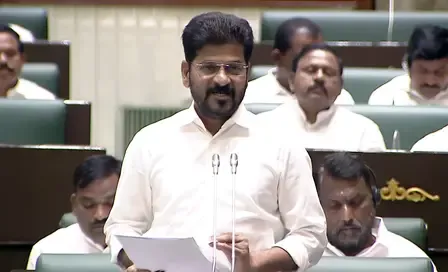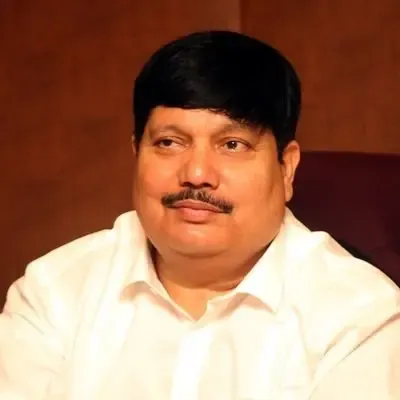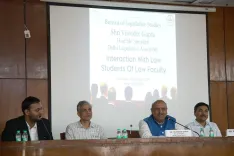What Does the Ghose Commission Report Reveal About the Kaleshwaram Project?

Synopsis
Key Takeaways
- P.C. Ghose Commission investigated Kaleshwaram project irregularities.
- Key political figures are implicated in the findings.
- The High Court is involved in the ongoing legal proceedings.
- The report is crucial for assessing project accountability.
- Discussion on the report is anticipated in the Assembly.
Hyderabad, Aug 31 (NationPress) The Telangana government has presented the findings of the P.C. Ghose Commission, which investigated the alleged irregularities surrounding the construction of the Kaleshwaram Lift Irrigation Project, during a session in the state Assembly on Sunday.
The complete report was distributed to the members in the form of pen drives.
Led by Pinaki Chandra Ghose, a former Supreme Court judge, the one-man commission delivered its findings to the Telangana government on July 31.
A brief discussion regarding the Ghose Commission's report is planned for later today.
This Commission was established on March 14, 2024, to investigate alleged irregularities in the planning, design, construction, quality control, operation, and maintenance of the Medigadda, Annaram, and Sundilla Barrages of the Kaleshwaram project, which were constructed during the administration of the previous BRS government.
The summary compiled by a group of officials after reviewing the report indicated that then Chief Minister K. Chandrasekhar Rao (KCR) was held directly and indirectly responsible for the irregularities in the planning, execution, completion, operation, and maintenance of the Kaleshwaram project.
The report also implicated Eatala Rajender and T. Harish Rao, who served as finance and irrigation ministers respectively.
KCR and Harish Rao have approached the Telangana High Court seeking to dismiss the report.
The petitioners argued that the formation of the Commission was arbitrary and illegal, contravening the provisions of the Commission of Inquiry Act.
On August 22, the High Court declined to issue any interim orders, as the state government assured that no action would be taken against the petitioners prior to the tabling and discussion of the Commission's report in the Assembly.
The High Court has postponed the hearing for five weeks, directing the Chief Secretary and the Irrigation and Command Area Development Secretary to submit detailed counter-affidavits in response to the petitioners’ concerns within four weeks. The petitioners will then have one week to respond, if necessary.









